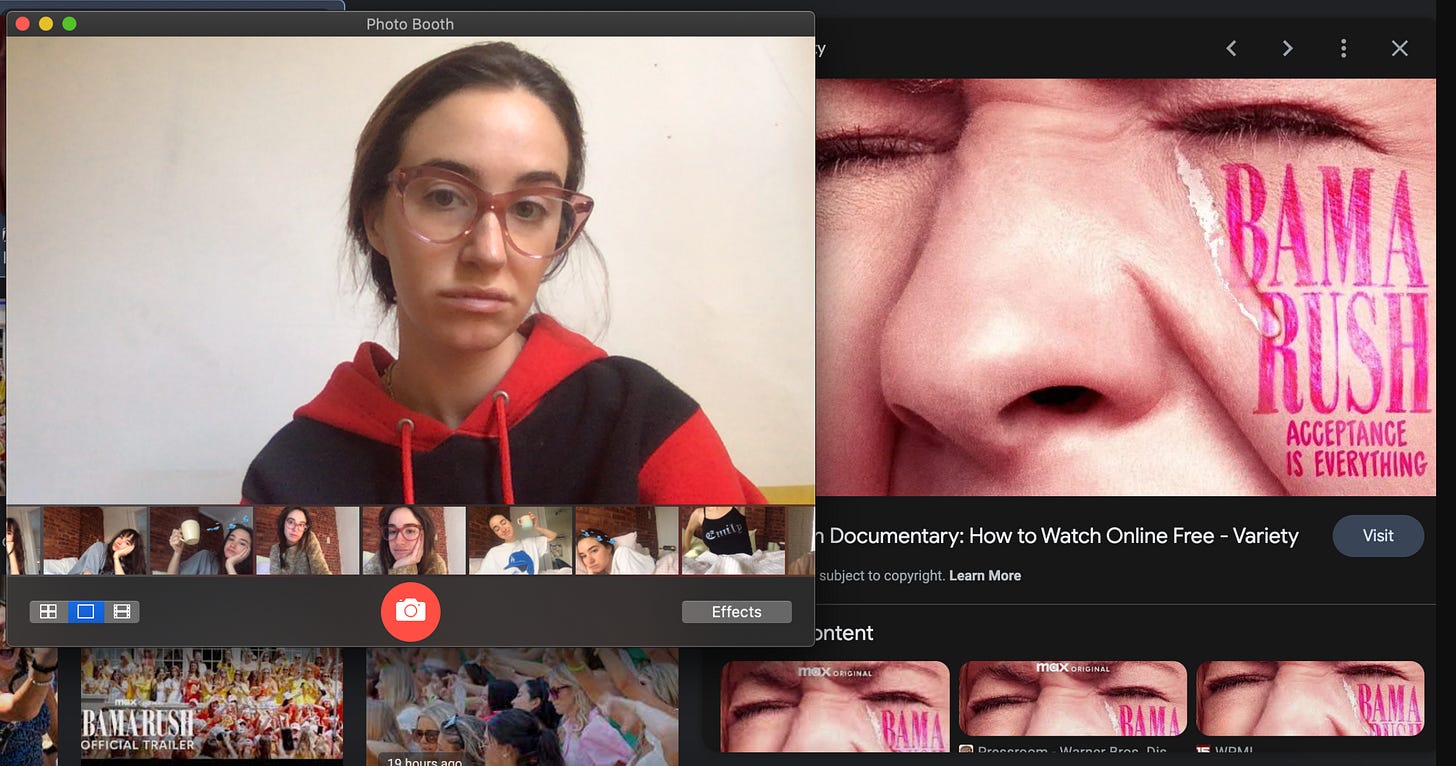The 'Bama Rush' intro was the best part
What a lost opportunity.
Hello everyone.
I just watched the Bama Rush doc on MAX. At dinner last night with friends, we were discussing the implications it might have on brand marketing strategies later this year. Would brands have to pull the plug on back-to-school influencer game plans that involved sororities because of an impending Greek Life reckoning caused by the the film? Now that Alix Earle has graduated, would brands have to find new groups of on-campus friend groups to deck out in free merch? I went to bed excited to watch this thing and have a big essay to write about how to market to young women. The cover of the movie indicates it should’ve been excellent — immersive, dramatic, telling.
The opening sequence shows a haunting set of iPhone screens with TikTok clips of blonde young women talking to the camera about their OOTD (outfit of the day), where they purchased all of their clothes and jewelry (“Vivienne Westwood, Tiffany obviously”), and going through hair routines. It’s nothing you haven’t seen before, but the concentration of it all was overwhelming. I thought it was a great opening, the animators turned the phones into a hall of mirrors and I was excited to be thrown into a Black Mirror-esque look at southern Greek life and late teendom.
The movie sucked. Documentarians have a responsibility to subjects, and this felt irresponsible and exploitative. I’ve written a few times that the majority of people who consider themselves experts on Gen-Z are grifters. These “experts” are often curious or jealous or interested in this social media-obsessed generation, and instead of listening to them, they choose to cash out on them or have their analysis of the age group benefit themselves.
The dramatic trailer for Bama Rush proclaimed, “This documentary could be the end of Greek life as we know it.” Couldn’t be further from the truth.





